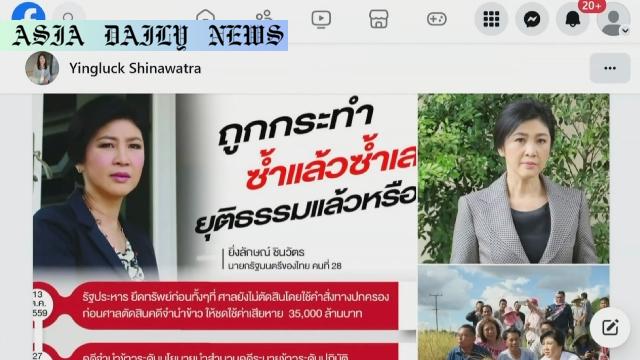Rice Subsidy: Yingluck Shinawatra faces $300M fine over a failed rice subsidy scheme criticized for corruption and inefficiency.
- Yingluck Shinawatra fined $300M for the rice subsidy scheme deemed corrupt.
- Supreme Administrative Court highlighted government losses and inefficiency.
- Yingluck faces penalties while continuing her self-imposed exile abroad.
- The rice subsidy scheme aimed to elevate low-income farmers’ support but faltered.

Background of the Rice Subsidy Scheme
The rice subsidy scheme was introduced during Yingluck Shinawatra’s term as Thailand’s Prime Minister between 2011 and 2014. As her flagship policy, it aimed at improving the financial well-being of farmers by purchasing rice at above-market prices. While this effort was initially lauded as progressive and supportive of Thailand’s low-income agricultural sector, it quickly garnered criticism for its mismanagement and failure to deliver its intended benefits. The scheme amassed large amounts of unmarketable rice, creating an unsustainable economic burden on the state.
The $300M Fine and Court Ruling
The Supreme Administrative Court of Thailand recently concluded that Yingluck’s administration failed to adequately contain corruption and inefficiencies in the rice subsidy program. Resulting in a reported $300M loss to the nation, the court has now ordered Yingluck to pay this amount in damages. This landmark ruling emphasizes the extent of the financial toll the scheme took on the Thai economy. Critics have pointed out that the stockpiled rice caused a decline in international trust in Thailand’s rice exports as the crops deteriorated due to mismanagement.
Yingluck Shinawatra’s Response
In response to the ruling, Yingluck Shinawatra has publicly claimed that she was not the direct cause of the financial damage, asserting that she had no ill intent and only pursued the policy to aid the underprivileged. Through her statement on Facebook, she vehemently denied allegations of wrongdoing and expressed her intent to continue fighting for justice. Now living in self-imposed exile since leaving Thailand shortly before a military coup in 2014, Yingluck continues to maintain her innocence while dealing with the reputational fallout of the verdict.
Challenges in Implementation of the Scheme
The rice subsidy policy, while noble in principle, was poorly executed. By offering farmers significantly higher prices than the prevailing market rate, the Thai government effectively overpaid for the produce without establishing a viable resale or distribution strategy. This led to mountains of unsold crops, which placed immense financial stress on the administration. Additionally, loopholes in the program’s operations facilitated corruption, as unscrupulous individuals exploited the system for personal gain. These factors culminated in the colossal economic losses discussed in the recent court ruling.
Broader Implications for Thai Politics
The fallout of the rice subsidy debacle serves as a stark reminder of how poorly implemented policies can mar a government’s legacy. Yingluck’s ousting in 2014 and her subsequent exile marked a significant turning point in modern Thai politics. Her family, the Shinawatras, has consistently been a polemical force, navigating both widespread popular support and staunch opposition. With her brother, Thaksin Shinawatra, playing a prominent role in Thai governance and her niece, Paetongtarn Shinawatra, now serving as the country’s prime minister, this court ruling could revive political debates surrounding their dynasty and policies.
Future of Agricultural Reform in Thailand
The outcome of this case raises questions about the future of agricultural reforms and subsidy policies in Thailand. While intended to alleviate poverty and support farmers, without safeguarding against corruption and inefficiency, such programs could become major liabilities. For Thailand to move forward, policymakers must ensure that future subsidy schemes are designed with robust mechanisms for transparency, accountability, and sustainability, ensuring minimal loss to the national economy and maximizing the well-being of its citizens.



Commentary
A Policy With Good Intentions but Flawed Execution
While Yingluck Shinawatra’s rice subsidy scheme aimed to provide critical support for Thailand’s struggling farmers, its failure highlights a recurring challenge in global governance: the gap between policy intent and execution. Programs like these, no matter how noble, require a comprehensive plan that ensures efficiency, fairness, and accountability. Thailand’s agricultural backbone deserves attention, but this unfortunate failure underscores the need to balance ambition with practicality.
Lessons for Future Leaders
The $300M fine imposed on Yingluck should serve as a cautionary tale for policymakers around the world. When implementing large-scale economic interventions, governments must ground their actions in data, expert audits, and clear recovery strategies. Leaders have the immense responsibility of not only formulating policies but also ensuring their effective execution to prevent misuse and citizen disillusionment.
The Role of Accountability in Governance
One cannot ignore the importance of accountability when evaluating Yingluck’s case. Whether or not she directly caused the financial damages the court found her responsible for, her position as the leader of Thailand at the time inevitably makes her a focal point of accountability. Governance at the highest level requires accepting responsibility for both successes and missteps. Her exile and continued legal battles illustrate the larger struggles many leaders face when reconciling their intentions with outcomes.
The Agricultural Sector Deserves Stronger Support
Yingluck’s policy may have been flawed, but it stemmed from a genuine acknowledgment of the needs of Thailand’s farmers. These individuals work tirelessly to sustain the nation, yet often find themselves marginalized. Governments must continue supporting this critical demographic but must do so with safeguards in place to ensure that funds reach intended recipients and that operations remain transparent. Reforming agricultural policies is not merely an economic imperative but a moral one as well.